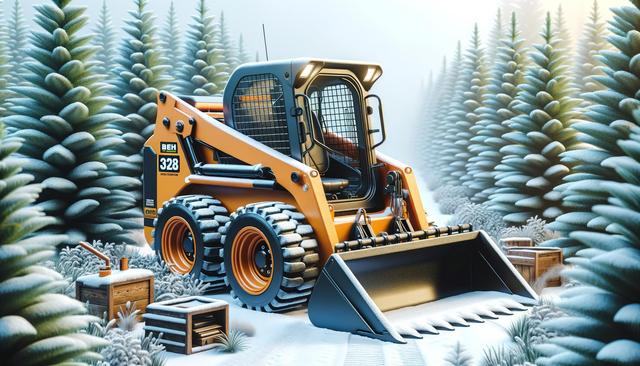What Are Bank-Owned Utility Skid Steer Loaders?
Bank-owned utility skid steer loaders are machines that have been repossessed by financial institutions due to loan defaults. These compact, versatile loaders are commonly used in construction, landscaping, agriculture, and other industries that require earthmoving or material handling. Because they are repossessed, banks typically aim to sell them quickly, often at competitive prices. These loaders vary in model, usage hours, and condition, making it important for buyers to evaluate each unit carefully before purchase.
Many of these machines come from reputable sources and were maintained on a regular schedule before being repossessed. Although the condition may vary, bank-owned units often present an opportunity to acquire dependable skid steer loaders at a fraction of the cost of new equipment. Buyers should be prepared to inspect these units thoroughly or work with a trusted dealer who can provide detailed condition reports.
Reasons to Consider Bank-Owned Equipment
There are several reasons why purchasing a bank-owned skid steer loader can be a smart choice for budget-conscious buyers. One of the main appeals is the significant cost savings compared to buying brand-new equipment. In addition, these machines are often available immediately, with less lead time than ordering new units from the manufacturer.
Other notable advantages include:
- Potential for lower financing options offered directly by the bank
- Opportunity to negotiate prices more flexibly
- Access to a wide range of utility models with various attachments
- Shorter waiting period compared to ordering new equipment
However, it’s important to balance the benefits with a careful review of the equipment’s history and condition. Buyers should request maintenance records and conduct thorough inspections, preferably with a qualified mechanic or technician.
Where to Find Bank-Owned Skid Steer Loaders
Bank-owned utility skid steer loaders can be found through several channels. Many banks and lending institutions list their repossessed assets on auction websites, dealer networks, or even dedicated asset recovery platforms. Some dealers specialize in reselling bank-owned or lease-return equipment and may offer additional services such as inspections, warranties, or delivery.
Common sources include:
- Online equipment auction platforms
- Local and regional equipment dealers
- Bank liquidation or asset recovery websites
- Classified ads in industry publications
When searching for bank-owned equipment, it’s helpful to set a clear budget and understand the specifications required for your intended tasks. This ensures you can compare options effectively and make a well-informed decision.
Inspection Tips Before Purchase
Before purchasing a bank-owned utility skid steer loader, conducting a thorough inspection is essential. Since these machines are sold as-is, understanding their working condition and any potential repair needs can prevent costly surprises. Buyers should check both the mechanical and cosmetic aspects of the loader, including the operating hours, hydraulic systems, engine performance, and tires or tracks.
Key areas to evaluate include:
- Hydraulic leaks or worn fittings
- Engine noise, oil condition, and exhaust smoke
- Attachment functionality
- Cabin controls and electronic systems
- Signs of rust or structural damage
If possible, request a test run or operational demonstration of the loader. This can help identify issues that may not be visible during a static inspection. If you’re unfamiliar with equipment diagnostics, consider hiring a certified technician to assist in the evaluation process.
Making a Smart Investment
Purchasing a bank-owned utility skid steer loader can be a strategic investment for construction companies, contractors, farmers, and other professionals. With proper due diligence, buyers can secure a reliable machine that meets their operational needs without exceeding their budget. Understanding the resale market and comparing similar models can also provide leverage during negotiations.
To make the most of the investment, consider the following tips:
- Establish a clear budget including potential repair costs
- Research market value for similar models and conditions
- Review the machine’s service history and documentation
- Work with trusted dealers or auction platforms
- Plan for warranty or post-sale support if available
Buying bank-owned equipment requires a balance of opportunity and caution. But for those willing to do the homework, it can result in meaningful cost savings and long-term value.
Conclusion: A Practical Path to Equipment Ownership
For buyers seeking affordable and capable machinery, bank-owned utility skid steer loaders represent a practical pathway to equipment ownership. These machines offer versatility and performance for a range of tasks and can be a smart choice for those looking to expand their fleet without overextending their budget. By carefully evaluating each loader and understanding the purchase process, buyers can make informed decisions that contribute to the efficiency and success of their operations.







